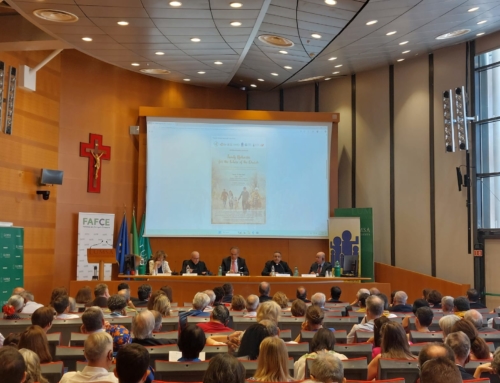Brussels, 19th June 2024
Yesterday, the European Council of the European Union debated on the strategic agenda 2024-2029 and the topic of cohesion policy at the General Affairs Council. Straddling several subjects that impact cohesion, Ministers took a long-term view at the strategic difficulties confronting Europe. FAFCE welcomes the Council of the EU’s correct focus on the demographic winter and its impact on cohesion. FAFCE urges that families to be put at centre of the Strategic Agenda, recalling the need to invest in families for and the recognition of their role in our societies.
Central to the debate was the spotlighting of structural investment for growth, employment, and competition; attending to regions most impacted by demographic, ecological, and digital transitions. Additionally, Ministers focused on the necessity of aiding border regions in the Eastern part of the continent with security matters, particularly in the context of EU enlargement.
The Council reiterated these “various structural and emerging challenges that need to be addressed, while avoiding a widening of disparities across the EU”. These are transitions that FAFCE has long been highlighting. Indeed, the latest Spring Board resolution, Integral ecology needs at its core the recognition of the family, identified the requirement of protagonising the family in the ecological transition.
Furthermore, the Council of the EU expressed “particular concern regarding demographic challenges and the remaining large socio-economic disparities at sub-national level, where many regions face economic stagnation and development traps”.
FAFCE Senior Policy Officer, Marta Fernández de Córdoba, said: “It is encouraging that the alarm is being raised on the demographic winter, which has wide-ranging effects on public finances, intergenerational solidarity, and loneliness. It is truly an existential crisis threatening Europe and its cohesion, because without the family there is no future. Investing in the family is investing in the future. The crucial time to act is now, which is why it is also welcome news that the incoming Hungarian Presidency has declared demography a principal priority for its term beginning in July.”
We also welcome the invitation from the Council that the “Commission to consider appropriate ways to provide tailored support for regions after 2027 to successfully manage those challenges, with a special focus on the green, digital, industrial and demographic challenges and the different levels of socio-economic development”. The phrase ‘tailored support’ is appropriate. While demography is an existential issue for all of Europe, the response will need to reflect the specific realities of Member States, for whom the principle of subsidiarity must be respected.







